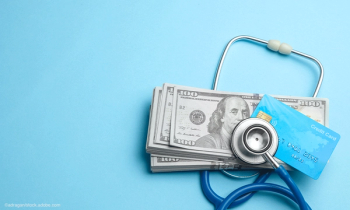
Where Physicians Should Keep Their Personal Finances
Here's a look at the high and low points of withdrawals and distributions of cash and profits from your medical practice.
We’ve covered the use of
How Much Should Be In My Personal Account?
One of the questions I explore with every client in determining their exposure and what assets are collectible is the amount of cash they keep in their personal checking and savings accounts. I’m often surprised to see the relatively large amount of cash retained in these most exposed accounts. I routinely see personal checking accounts that have six figures in value, and in the worst cases at amounts above the current FDIC limits of $250,000 per account.
There is no correct objective answer to this question as every family has a different lifestyle and spending patterns, but we have a found formula that seems to work for most people. I ask clients what they spend in an average month in personal fixed expenses and make them provide a real number.
Once we’ve arrived at that, I ask if three times that amount would provide them the necessary flexibility and security to operate and not feel “pinched.” In most cases they do agree that number works and provides a comfort level and from my perspective is a reasonable compromise between convenience and asset protection of their exposed cash assets. I then ask about specific recurring or planned expenses like an annual vacation, private school or college tuition outlays, taxes, and other issues that we can plan for and leave a reasonable additional amount in that account to cover.
What if We Underestimate or Have Unplanned Expenses?
We try to avoid this, but it can happen. In those cases we typically have the ability to take a loan of cash from a protected family investment entity such as
Should I Take Cash Out of My Business?
Many doctors leave unnecessarily large amounts of money in their business accounts for two primary reasons:
• They feel that the corporation is safer than their personal account.
• They are hesitant to pay taxes on any withdrawals they may not actually need for personal cash flow.
In most cases, I disagree with both of these justifications. First, having an excess amount of cash in a medical practice leaves that cash exposed to both internal and external threats, i.e. malpractice and employee lawsuits. Add to that increased threats from regulatory exposures like HIPAA and EHR and issues like employee re-classification exposure (more on that soon) and the treat level soon equals what you may perceive you are avoiding on the personal side.
Second, the tax issue is one that is endlessly debated, you worked hard for the cash and plan to eventually withdraw and consume it in some way. Work with a good CPA and financial advisor, and get that money out in the most efficient way possible and get it working for you. If you have substantial excess cash in your business and personal accounts as a matter of routine (a great problem!) max funding the appropriate types of retirement plans allows both tax efficient (or at least deferred) withdrawals and creditor protection by law in many cases. Add to that long-term appreciation in retirement plans that are typically conservatively invested and the “cash in the bank” model makes less and less sense.
We also advise clients to set aside funds for fixed recurring expenses, (taxes, insurance, healthcare) and to pay them in advance when possible. This makes productive use of funds, gets them away from your liability, and helps ensure solvency and that key operation expenses and obligations are covered. Common objection: “But I’m losing the opportunity cost of the money and giving my creditors, the government, etc. a free loan” True, but then you add in the expenses and liability of holding that cash along with the fact that few people actually do anything with that short term excess anyway, the argument becomes substantially less convincing.
Find out more about Ike Devji and our other
Newsletter
Optimize your practice with the Physicians Practice newsletter, offering management pearls, leadership tips, and business strategies tailored for practice administrators and physicians of any specialty.






